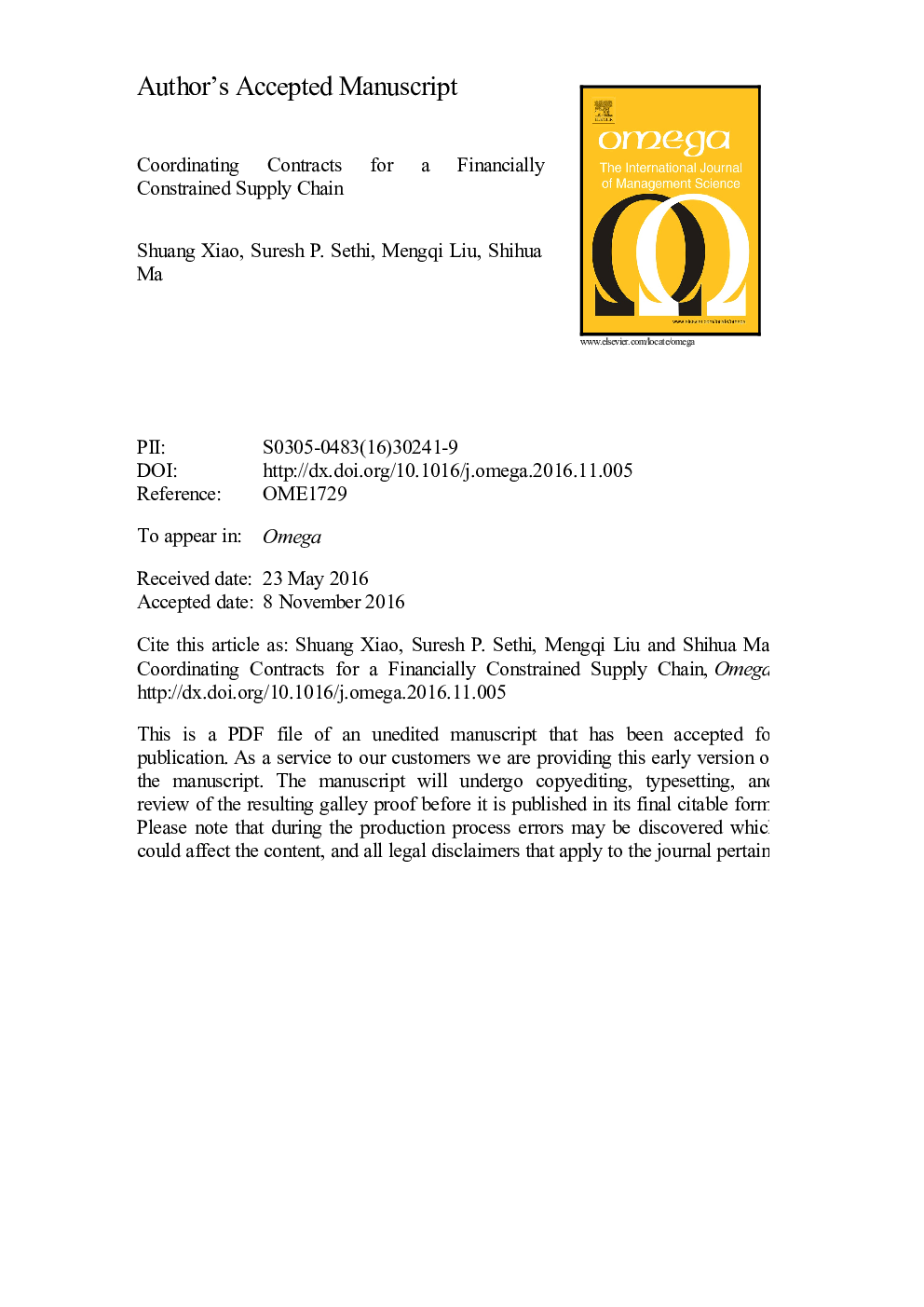| Article ID | Journal | Published Year | Pages | File Type |
|---|---|---|---|---|
| 5111700 | Omega | 2017 | 60 Pages |
Abstract
We consider a financially constrained supply chain in which a supplier (leader) sells products to a retailer (follower) who has no access to bank financing due to her low credit rating. However, the supplier can borrow from a bank and offer trade credit to the retailer to alleviate her financial constraint. Failure to pay off a bank loan or trade credit incurs a variable default cost. We analyze the centralized version of the supply chain to obtain new coordination requirements. We then examine whether revenue-sharing, buyback, and all-unit quantity discount contracts can coordinate our supply chain. We show that the all-unit quantity discount contract fails to coordinate. However, the revenue-sharing and buyback contracts can coordinate the supply chain, but only when the supply chain has a sufficient total working capital. Moreover, they cannot allocate profit flexibly unless the supplier has a large enough working capital. Finally, we design a generalized revenue-sharing contract that coordinates the supply chain with flexible profit allocation, and also show by numerical examples its superiority over the revenue-sharing and buyback contracts.
Related Topics
Social Sciences and Humanities
Business, Management and Accounting
Strategy and Management
Authors
Shuang Xiao, Suresh P. Sethi, Mengqi Liu, Shihua Ma,
